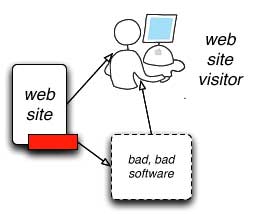 The government of the USA was constituted “to provide for the common defense” among other things.[1] Unfortunately the line between public responsibility and private responsibility for defense in cyberspace could be rather blurry.
The government of the USA was constituted “to provide for the common defense” among other things.[1] Unfortunately the line between public responsibility and private responsibility for defense in cyberspace could be rather blurry.
Clearly when there is warfare in the physical world the combatants are also likely to utilize cyber tactics of some sort, even if only for informational or propaganda purposes, but more likely as powerful tactics to take down their target’s ability to respond quickly or in a focused manner. Because governments aren’t really equipped to handle these types of attacks, which would include attacks against private infrastructure, not just government systems, they’d have to rely on private companies, individuals and groups — essentially private armies — to deflect or thwart any attack. [Read more…]
 They don’t say this directly—these are my words: Crime, espionage (and warfare) seep into the interstitial spaces of society and occupy any vacuum they find. And from there they can grow to occupy the whole of the space, like a mold, fungus, or rot.
They don’t say this directly—these are my words: Crime, espionage (and warfare) seep into the interstitial spaces of society and occupy any vacuum they find. And from there they can grow to occupy the whole of the space, like a mold, fungus, or rot. In early June, I was in a nice rainy East Coast US city for meetings dealing with particularly thorny issues related to ways the Internet experience is being killed off for regular folks—and for institutions (NGOs) that are promoting free speech and human rights. Over a small breakfast, I sketched in my book some notes about the progression of malware over time. Basically paralleling
In early June, I was in a nice rainy East Coast US city for meetings dealing with particularly thorny issues related to ways the Internet experience is being killed off for regular folks—and for institutions (NGOs) that are promoting free speech and human rights. Over a small breakfast, I sketched in my book some notes about the progression of malware over time. Basically paralleling 
 So the “solution” to providing uncensored Chinese-language search, at least right now (beginning 22 March, 2010), is to have
So the “solution” to providing uncensored Chinese-language search, at least right now (beginning 22 March, 2010), is to have